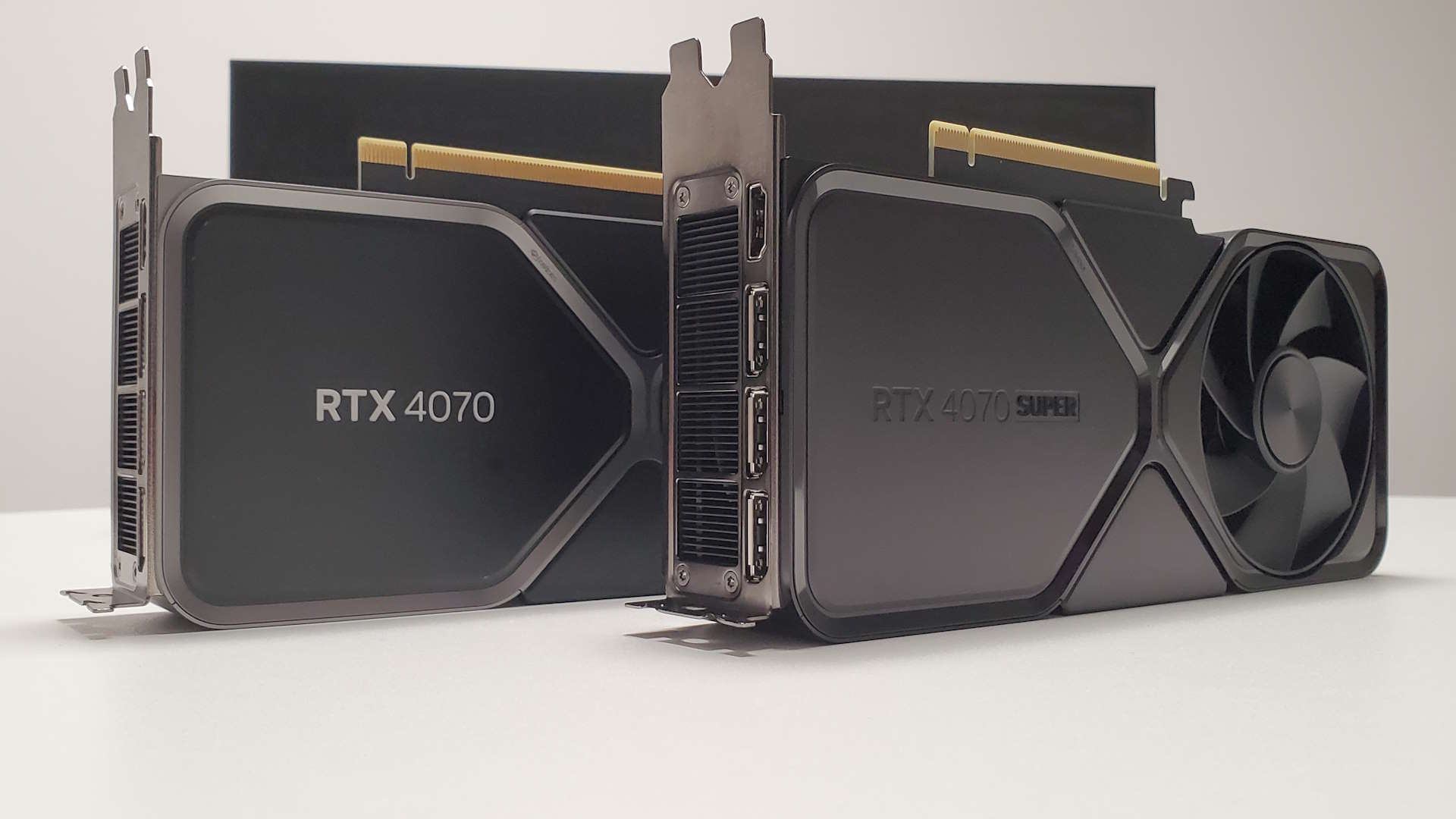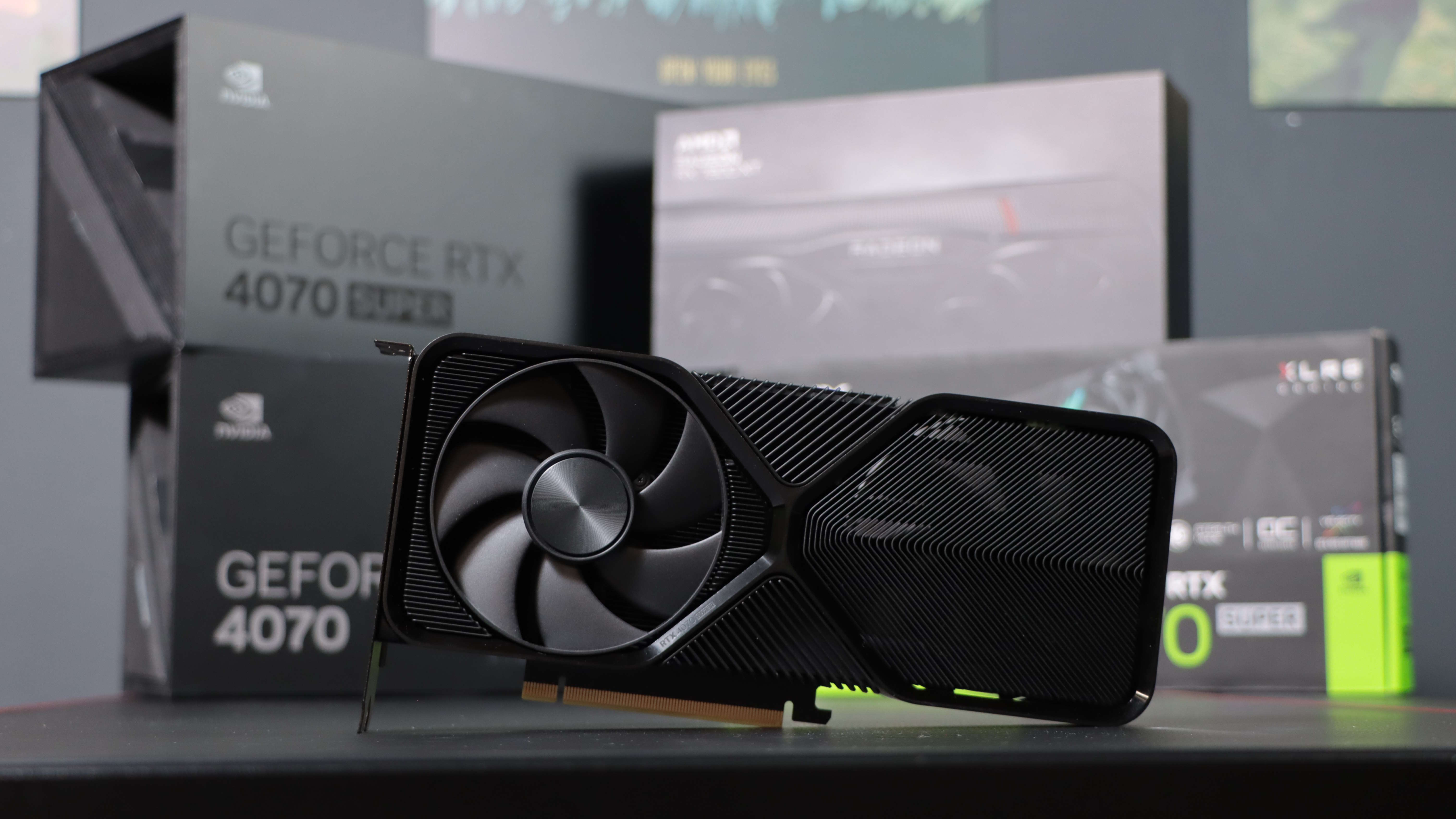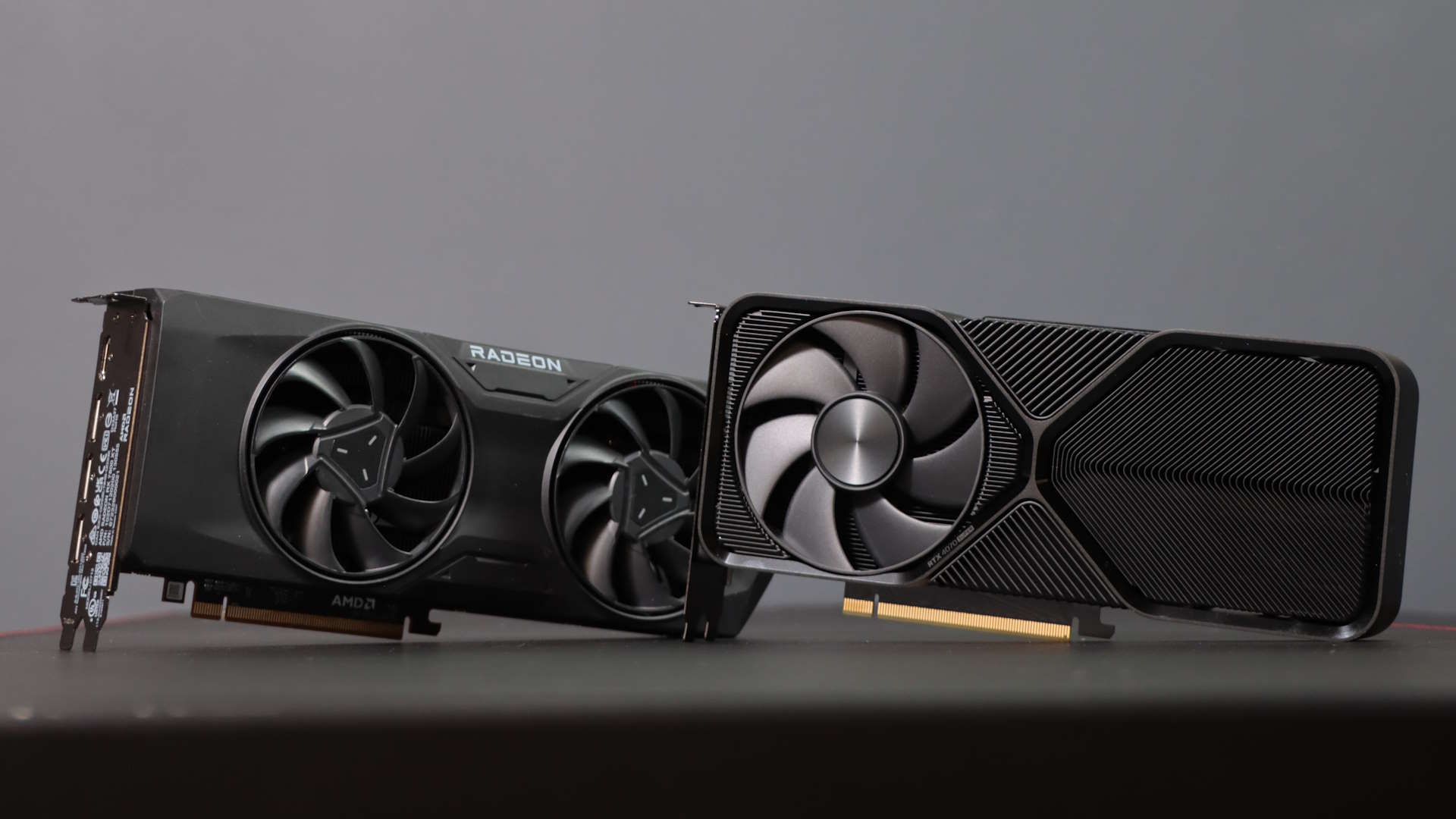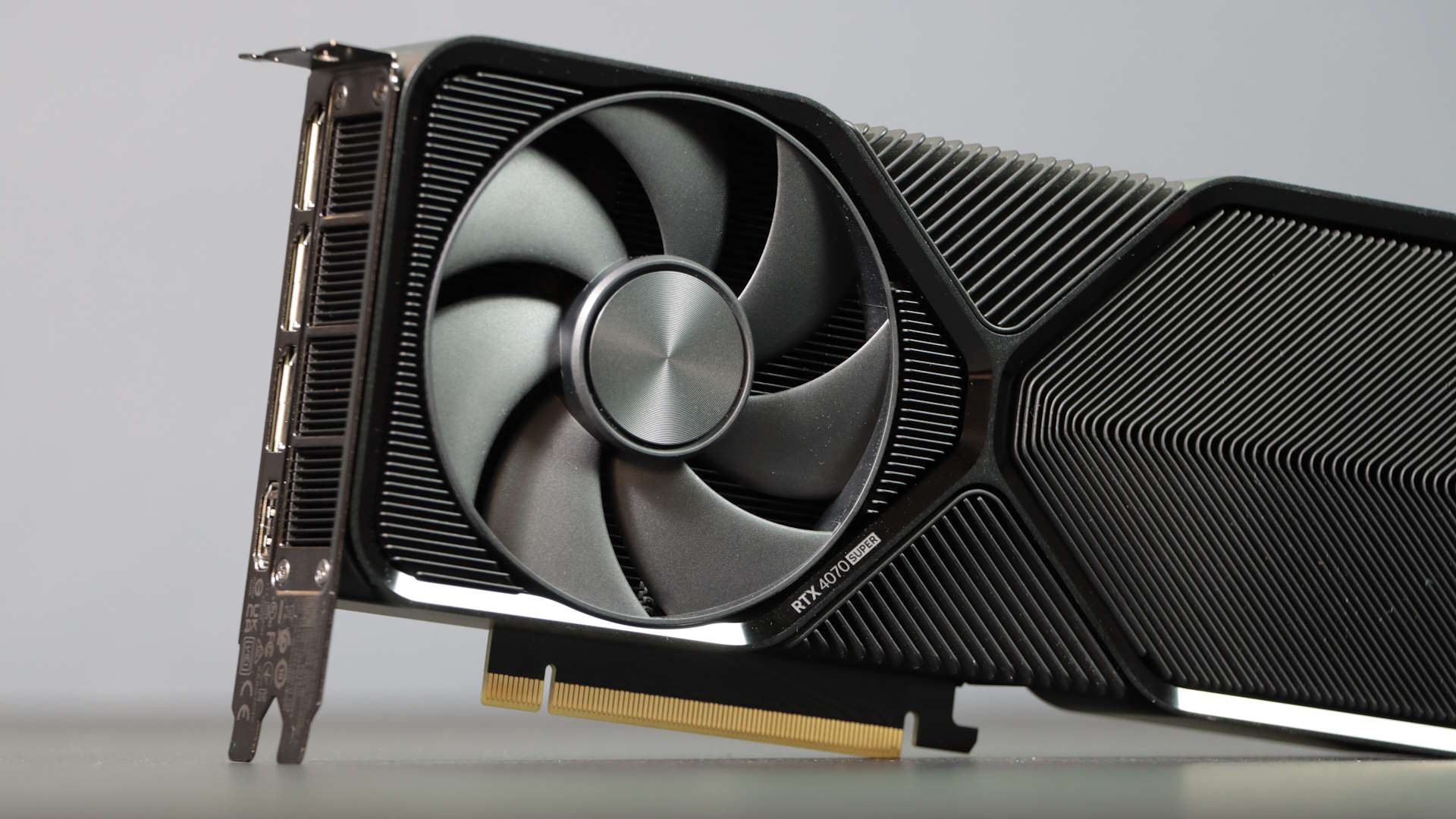
The latest Nvidia Super card is here and you can see from my GeForce RTX 4070 Super review that I'm a bit of a fan. But I can't help but feel it's made a mistake by keeping the old RTX 4070 around and not taking it out back with a shotgun in hand.
Of all the RTX 40-series Super cards launching this month, this is the first and the one which benefits from the arguably the biggest GPU specs increase of the lot. Though my card has yet to arrive, I am however, kinda excited about the complete change of GPU and memory in the RTX 4070 Ti Super. Though I still think it's a dumb name.
With 22% more CUDA cores, the RTX 4070 Super is practically giving you RTX 4070 Ti performance for $200 less because it remains at the same $599 price point as the original RTX 4070 it's replacing.
Except, it isn't. Replacing the RTX 4070, I mean.
No, unlike with the rest of the new Super series of Ada-powered cards, where the RTX 4070 Ti and RTX 4080 are being retired (they are, after all, too old for this shit, Riggs) in favour of their Super replacements, the RTX 4070 is sticking around for the foreseeable future. And it gets a price cut because the RTX 4070 Super is taking its original spot.
So, why the hell is that happening? Well, it's all AMD's fault. And I've lost track of the number of times I've said that over the years, but here you can blame the impressive mid-range gaming muscle of the RX 7800 XT, our favourite graphics card of last year.
That card has made it tough going for the RTX 4070 ever since launch, with the Radeon GPU launching at $499, some $100 less than the GeForce option and with performance not a million miles off. We've seen the RTX 4070 dropping in price a lot at third-party vendors to compete and now Nvidia has made it official with a new $549 MSRP.



With the RTX 4070 Super that original $100 price delta now matches the 20% difference in gaming performance between the RX 7800 XT and RTX 4070 Super, though it is now arguably in a completely different tier of GPUs. But with there only being a nominal $50 difference between the RTX 4070 and its Super brethren, one is surely going to cannibalise sales of the other, rather than definitively taking them away from the still cheaper RX 7800 XT.
It's got a better chance of hurting the Radeon card if the old GeForce GPU drops down around the $499 mark again, but then it will be taking more chunks out of the RTX 4070 Super, which is only 10%+ quicker in games.
This could have all been avoided if Nvidia had just nixxed the old RTX 4070 and completely replaced it with the same $549 price tag. You get the marketing win of faster and cheaper than the old card, you get a little closer to the pricing of the Radeon, but with a very clear gaming performance lead across the board, and you make it very hard for all but the dyed-red AMD faithful to consider the RX 7800 XT over the new RTX 4070 Super.
I make it sound simple, and I expect there are some sales projections scrawled out on a whiteboard somewhere at Nvidia HQ that bear out its current plans, but for me it just feels a little too convoluted. And like it's making things just a bit over-complicated for the gamer trying to pick their next GPU.
Though maybe in the end it's all about market psychology; maybe the studies show that if someone's picking between a $549 and a $599 graphics card nine times out of ten they'll spend more. And that would make it an easy cake-and-eat-it scenario for Nvidia.







